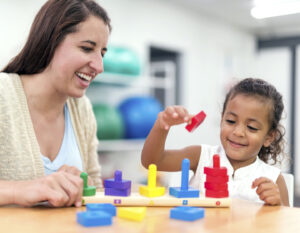

Are your little ones growing up too fast? Here’s how to help with the journey from tweens to teens.
Today, children seem to be getting older faster. With the advancement of technology, the world is most definitely a different place from when we grew up. Smartphones were once science-fiction, but now they hold almost all our entire lives in one compact place. And where there used to be just one phase for our kids growing up (the teen years) it seems we now need a new word for the period that comes before: tweens! But what’s the difference between tweens and teens? And just how can we help our youngsters through the transition? Read on to find out.
Jump to:
Tween years
Teen years
Parenting tips to help the transition from tweens to teens
Read more: Does Your Childhood Affect How You Parent?


Tween years
With so much going on during the teen years, it is no wonder many parents are intimated by it. Thankfully, children do not become teenagers overnight and seem to go through another transitional period known as the tween years. Originally a marketing terminology, the word “tween” is a blend of “between” and “teen”, used to describe those roughly between the ages of 9 and 13 (who are no longer children but are not quite teenagers yet). With both puberty and exposure to popular culture through technology starting at an earlier age, the emergence of tweens (or preteens) as a separate group from children or teenagers becomes increasingly clear.
It is during the tween years that puberty begins for most, with the onset occurring between the ages of 7 and 13 for girls, and between the ages of 9 and 13.5 for boys (American Psychological Association, 2002; Grumbach & Styne, 1998). This kick-starts some visible changes, such as breast development and the menstrual period for girls and enlargement of the testes and penis for boys, which can be anxiety-provoking for tweens. The development of the brain area that drives emotions (limbic system) also intensifies as puberty begins yet the brain area that controls impulses (prefrontal cortex) develops much more gradually well into the 20s, resulting in an imbalance between emotion and control from these tween years all the way into young adulthood (Giedd, 2015). This imbalance may be responsible for moodiness, increased conflict with parents, and novelty seeking that seems to begin around the tween years (parenting just got a lot more fun!).
Compared to children, preteens have a much more realistic and sensible view of reality; even their fantasy-based fears of monsters become replaced by more realistic fears of kidnapping or accidents as they start to learn about the dangers of the world and become exposed to sex, violence, and drugs from television, internet, social media, video games etc. Tweens also become better at using logic when it comes to concrete matters, but may have a hard time distinguishing their own beliefs from facts (Broderick & Blewitt, 2010) which is why they may seem very mature at times and very childlike at other times.
It is during these years that preteens face an increasing amount of homework and responsibilities and join extracurricular activities like sports and music. Thankfully, most tweens enjoy mental and physical challenges. In fact, developing a sense of competence is an important task for tweens whose self-esteem tends to decline during this period. As social acceptance becomes more important to preteens (although, tweens still seek acceptance from parents and teachers), so do friendships. In fact, it is often during these tween years that peer pressure and social challenges, such as bullying, may occur. With increased access to technology, preteens are also developing closer bonds with their peers and may begin pushing away their parents to start developing their own identity (however, most still enjoy being with their family).

Teen years
Ah, the teen years – a time that a lot of parents dread. The teen years (between 13 and 19) has been traditionally viewed as a period of inevitable “storm and stress” (Halls, 1904) characterised by intense conflict with parents and authority figures, mood disruptions, and risky behaviour as teens transition from childhood to adulthood. While research suggests that this is not always the case (Arnett, 1999), the teen years are undeniably filled with significant changes and challenges that can be exciting but also overwhelming for teens and parents alike.
Being in the midst of puberty, teens continue to undergo many visible changes including height and weight gain, growth of pubic and underarm hair, the appearance of acne; thus, it is not uncommon for teens to feel awkward or self-conscious about their changing body. Cognitively, teens also become more capable of thinking about abstract ideas and hypotheticals, increasing their ability to solve problems, understand the consequences of their behaviour, and plan for the future. However, these relatively new skills may be used inconsistently, so teenage thinking can still be immature (remember to cut them some slack!).
With the ability to entertain possibilities, teens can mentally construct ideals of a perfect self, parents and political system. These constructs often don’t have realistic limitation and teens can become critical and even unforgiving of themselves and others when reality falls short of their ideals, including when their appearance does not measure up to whatever the current trend or fad is (Broderick & Blewitt, 2010) – remember your 1980s shellsuit days? Coupled with an increased ability to verbally express themselves, teens naturally become better at arguing and questioning parents’ and other rules and belief systems.
A central task in the teen years is identity development, which can cause teens to feel overwhelmed or moody as they strive to gain peer acceptance. Your once angelic child might also:
- Experiment with alcohol and drugs
- Wrestle with fundamental questions of who they are or what to do with their lives
- Explore various different career options
- Review religious, philosophical, political and social issues to make choices about their lifestyle
- Alter their goals and values
As part of their journey towards independence, teens also spend more time with peers than family (as hard as this may be for us parents!); they may show less affection towards parents, who they see as interfering with their independence. Finally, with physical maturation underway, teenage years generally mark the beginning of sexual exploration, as teens become interested in the same or opposite sex and experiment with dating and eventually sex.
Read more: 3 Ways To Help Your Child With Everyday Anxiety

Parenting tips to help the transition from tweens to teens
It is becoming clear that the transition from childhood to adulthood spans over a much longer time than previously thought and often begins during the tween years. Children do not become teenagers overnight and there is much that parents can do to help support this transition:
1. Build a strong parent-child relationship
Research has consistently highlighted the important role that positive relationships play in the development of resiliency. Having a strong relationship with your children actually serves as protection against delinquency during adolescence, yet it is often during the tween years that parents begin to feel like they are losing their connection with their children. It is normal for friendships to become increasingly important in a tween’s life and preteens may even start keeping secrets or turning away from their parents. As parents, it is vital not to personalise this as rejection and to respect these changes. To stay connected, try to reserve some one-on-one, quality time with your tween each week to talk and do things together, such as watching online videos of their choice, playing games, or taking a walk. Doing things that they enjoy is key to connecting with them; by doing so, you communicate your interest in their life and they may even open up more to you.
2. Prepare them for puberty
Puberty and the changes that come along with it can be anxiety-provoking for tweens. Your tween will likely learn about puberty at school; even so, be sure to let your tween know that you are here to answer any questions. Consider getting a book about puberty for your preteen to read in private and be sure to provide the instructions and the tools your tween will need to do what must be done for their changing body (such as how to use a pad or tampon, how to deal with acne or voice changes, how to shave). Tweens and teens can become distressed over the changes in their appearance that come with puberty so your instruction, understanding and support will often mean a lot to them.
3. Have conversations about sex, drugs, drinking and online safety etc.
In this day and age, it is inevitable that tweens become exposed to sex, drugs, and violence in one way or another, with some tweens even beginning to experiment with sex and drugs at this tender age. Therefore, it is vital to start discussing these important topics with them early and provide accurate and developmentally appropriate information to them. Again, consider getting books for tweens on these topics so they can absorb information at their own pace and come to you with questions. Be sure to discuss with them your expectations of their behaviour surrounding these topics in a warm and positive manner and discuss how to deal with peer pressure. A parenting style that is warm, responsive, and sensitive (but also sets limits for tweens and requires them to live up to standards) seems most helpful in keeping their risk-taking behaviour in check during adolescence.
4. Help them build skills, good habits and self-esteem
The things that parents worry about the most during the teen years such as drugs, drinking, sex, and violence are often maladaptive responses to stress. By helping tweens build skills and good habits, parents effectively increase their children’s resources to cope with stress during the teen years and increase their perception of personal control over problems.
When your tween comes to you with a problem, be sure to listen patiently and instead of lecturing, try asking questions and tailoring instructions to their level to guide them to solve the problem. It is also important to help them create an environment where they can be good at something and build confidence. For instance, allow tweens to participate in making decisions and increase the type of contributions they can make to society such as volunteering, which can help sharpen their sense of purpose and competence. Help tweens value what they are good at, broaden their definition of success and review their own improvements over time to combat their overreliance on social comparison as a measure of their performance. Finally, be a good role model for them, follow your own rules, live the values you preach and provide them with opportunities to incorporate these values and habits as part of their growing identity.
Read more: 10 Going On 15? Why Kids Grow Up Faster Now
 View All
View All











 View All
View All





 View All
View All


 View All
View All











